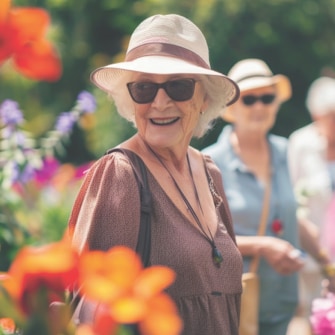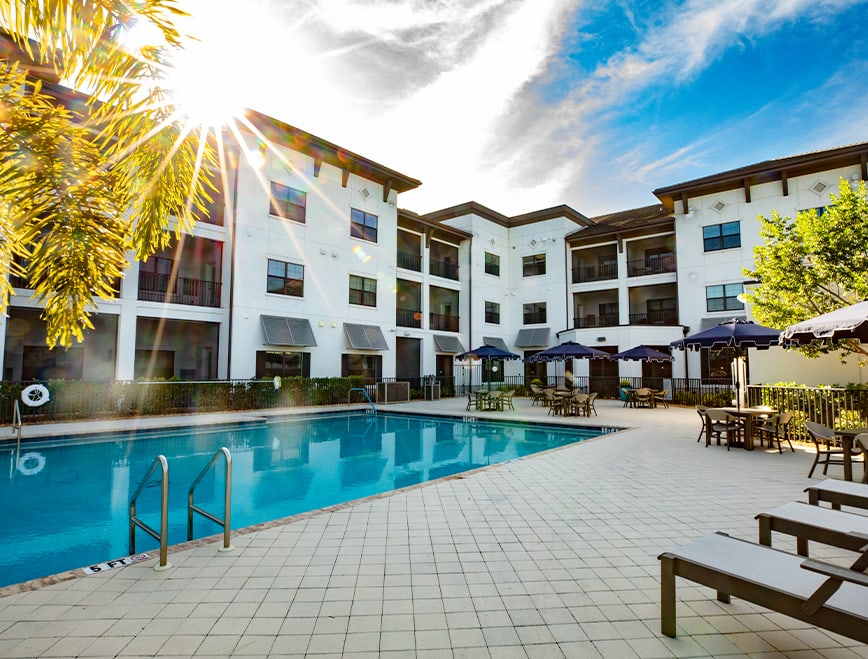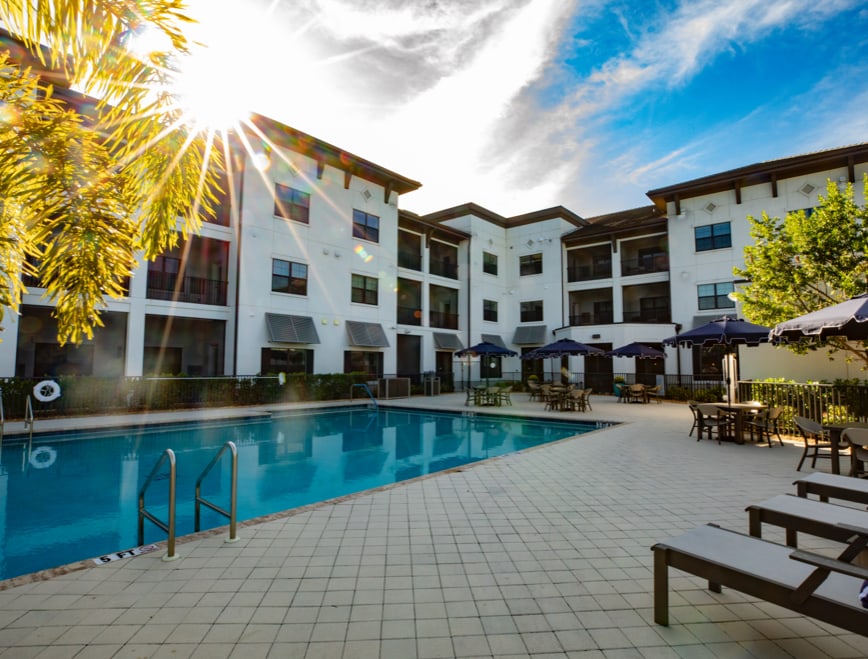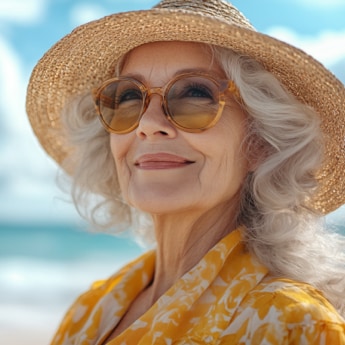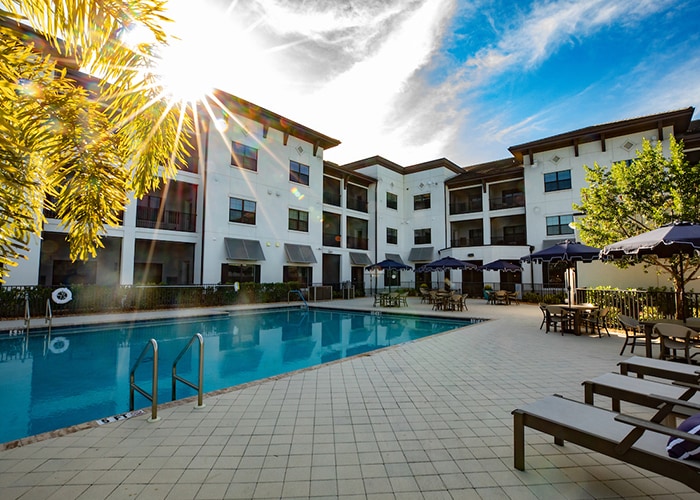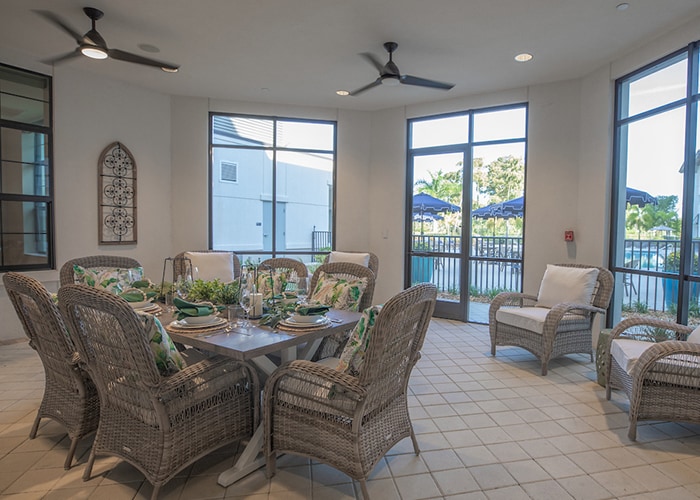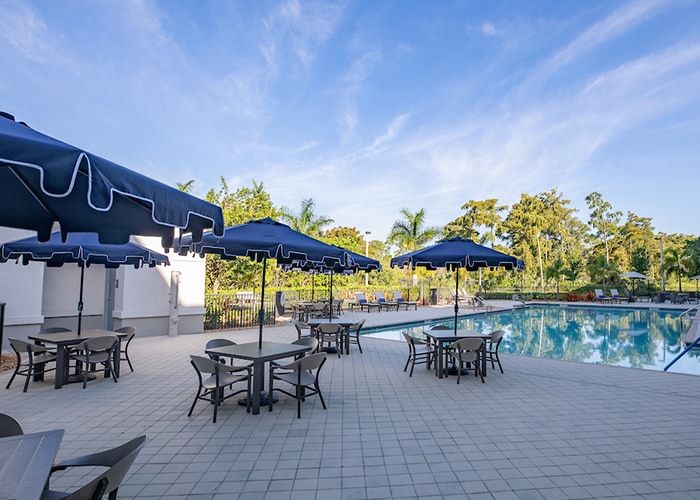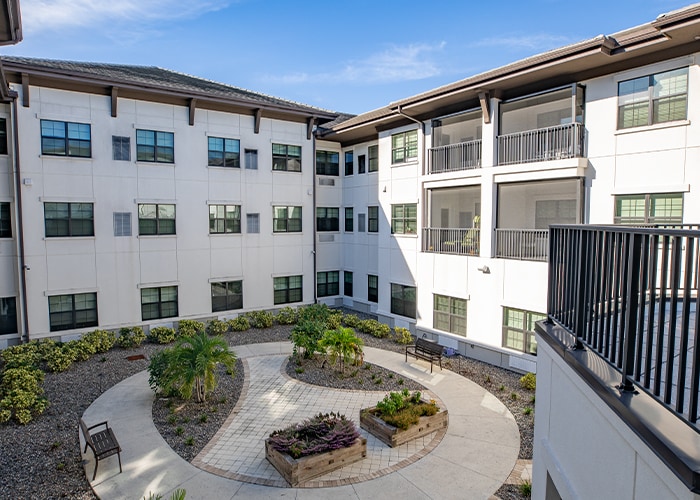Dehydration is a pressing yet often overlooked health concern, especially among seniors. Staying adequately hydrated is essential for maintaining both physical and mental health, but age-related changes can make it challenging to get enough fluids.
Fortunately, support from family or a senior living community can help encourage older adults to stay hydrated, whether that’s reminders to drink a glass of water or enriching dining options that include water-rich fruits and vegetables.
Understanding Hydration & Seniors
Water is essential for nearly every bodily function, from regulating body temperature to aiding digestion and transporting nutrients and oxygen. For seniors, hydration becomes even more critical as they are at a heightened risk of developing complications from even mild dehydration.
What Is Dehydration?
Dehydration occurs when the body loses more fluids than it takes in, resulting in an imbalance that affects its normal functioning. The warning signs of dehydration include dry mouth, fatigue, dark urine, dizziness, and confusion.
The Dangers of Dehydration in Seniors
Seniors are particularly vulnerable to dehydration, which can lead to serious health issues such as:
- Urinary Tract Infections (UTIs)
- Kidney Stones and Damage
- Constipation
- Low Blood Pressure
- Falls Due to Dizziness
- Cognitive Decline or Confusion
- Hospitalization for Severe Cases
Why Are Seniors More Prone to Dehydration?
Several age-related factors make seniors more susceptible to dehydration. The key contributors to this increased risk include:
Reduced Thirst Sensation
With age, the sensation of thirst diminishes, meaning seniors may drink less water simply because they don’t feel thirsty. This natural decline in thirst sensitivity can make it challenging to maintain proper hydration levels.
Decreased Kidney Function
Aging affects the kidneys’ ability to conserve water, leading to increased water loss through urination. Therefore, it is crucial for seniors to replenish fluids regularly.
Lower Body Water Percentage
As we age, water naturally makes up a smaller percentage of our body weight, so older adults have less water in reserve, leaving them more prone to dehydration.
Cognitive Impairment
Conditions such as dementia and Alzheimer’s disease can make it harder for seniors to recognize the need to drink water or communicate their thirst to caregivers.
Reduced Mobility
Limited mobility can prevent some seniors from getting up frequently to get water, especially if they rely on others for assistance.
Medications
Certain medications commonly prescribed to seniors, such as diuretics and laxatives, can contribute to dehydration by increasing water loss.
Chronic Conditions
Many older adults live with chronic conditions such as diabetes or heart disease, which can affect hydration levels and make fluid monitoring more critical.
Environmental Factors
Hot weather, air conditioning, and heating systems can all lead to increased fluid loss, which is especially dangerous for seniors who may not notice the effects quickly.
How to Support Hydration in Seniors
Keeping seniors hydrated requires thoughtful planning and monitoring. Here are some practical strategies to support hydration in older adults.
- Encourage Regular Water Intake: Seniors should be encouraged to drink small amounts of water throughout the day, even if they do not feel thirsty. Setting reminders or scheduling hydration breaks can be helpful.
- Offer a Variety of Fluids: Not all hydration needs to come from water. Unsweetened beverages like herbal teas, milk, or fruit-infused water can make staying hydrated more appealing. Foods with high water content, like cucumbers, oranges, and watermelon, also contribute.
- Monitor Fluid Intake: Caregivers should monitor the amount of fluid seniors consume daily and look for signs of dehydration.
- Avoid Overly Sugary or High-Sodium Drinks: While drinks like soda or sports beverages may be tempting, they often contain high amounts of sugar or sodium that can counteract hydration efforts.
- Create Easy Access to Water: Ensure water is always within arm’s reach, especially if mobility is an issue. Using spill-proof cups or lightweight water bottles can make hydration easier.
How Seascape at Naples Supports Hydration

Senior living communities, such as Seascape at Naples, offer structured environments designed to support residents’ health and well-being. Here’s how they ensure seniors stay hydrated.
Accessibility
Our community ensures water is available and accessible throughout the day. Hydration stations, water pitchers in apartments, and staff assistance provide constant access to fluids.
Variety of Beverages
Seascape at Naples offers various beverages, including herbal teas, fruit-infused water, and freshly prepared coffees, so residents can enjoy hydrating options that suit their taste preferences.
Monitoring & Support
Trained staff monitor residents’ hydration levels and assist those who need reminders or help drinking water. This level of care is significant for residents with cognitive impairments.
Additional Strategies
- Chef-Prepared Meals: Our community’s meals are designed to include water-rich fruits and vegetables to boost fluid intake naturally.
- Engaging Activities: Social gatherings such as morning teas or smoothie-making classes encourage residents to hydrate in a fun, communal setting.
- Temperature Management: Cooling systems and shaded outdoor areas help reduce fluid loss, especially during summer.
Supporting Hydration, Supporting Health
Dehydration poses a significant risk for seniors, but it’s manageable with proactive strategies and supportive environments. Seascape at Naples is dedicated to providing exceptional care and helping residents thrive through initiatives that prioritize hydration, safety, and overall well-being. Contact us today to learn how our community supports a healthy, fulfilling lifestyle.



